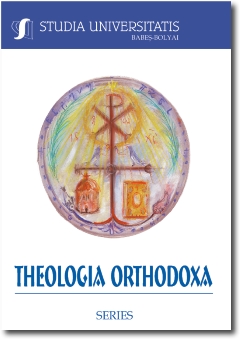DE LA AUTONOMIE ŞI AUTOCEFALIE LA UNITATE CANONICĂ ŞI ETICĂ. DILEME SOCIAL-TEOLOGICE ALE ORTODOXIEI ACTUALE
FROM AUTHONOMY AND AUTOCEPHALY TO CANONICAL AND ETHICAL UNITY. SOCIAL-THEOLOGICAL DILEMMAS OF THE PRESENT ORTHODOXY
Author(s): Radu PredaSubject(s): Christian Theology and Religion
Published by: Studia Universitatis Babes-Bolyai
Keywords: autonomy; autocephaly; ecclesiology; Universal Orthodoxy; Romania.
Summary/Abstract: From Authonomy and Autocephaly to Canonical and Ethical Unity. Social- Theological Dilemmas of the Present Orthodoxy. The Orthodox Church in Romania cellebrates this year 125 years of autocephaly, that is one and a quarter of a century of total independence of the Ecumenical Patriarchate of Constantinople, the Mother-Church of the majority of local Orthodoxies in Balcans and Eastern Europe. It is well known that the relation between “mother” and her “daugthers” was, most of the times, a tense one, especially after the fall of Byzantium under the Turks. Taking advantage of the essential nationalism of the modernity, the local Orthodox Churches gradually unyoked themselves of the bonds with a center lacking more and more in resources and, politically speaking, totally unrepresentative. What was natural according to the national emancipation turned into something profoundly problematic from the ecclesiological point of view, because the equilibrium between unity and diversity was deeply altered. The most illustrative example is the Orthodox diaspora, “organized” strictly according to ethnical criteria, preserving the connection with the Mother-Church, but being in open contradiction with the canonic norms of the Ecumenical Councils. Moreover, even the relations between the neighbouring Orthodox Churches, as those between Romania and the Republic of Moldova or those between Russia and Ukraine, will be articulated according to the filial pattern, already compromised, the Romanian communities being claimed by two “mothers”, one of origin and the other of historical conjucture. One example of the difficulty degree of this type of pastoration in modernity is given by the recent appeal of the Patriarchate in Bucharest to the Romanians from diaspora, calling them to rejoin the Mother-Church, as well as by the reactions of some theologians belonging to the Othodoxy of French language and culture. The present study analyzes, from a social-theological perspective, such dilemmas which, in fact, cover a deficit of understanding not only the Tradition, but also the modernity as such.
Journal: Studia Universitatis Babes-Bolyai - Theologia Orthodoxa
- Issue Year: LV/2010
- Issue No: 1
- Page Range: 99-120
- Page Count: 22
- Language: Romanian

